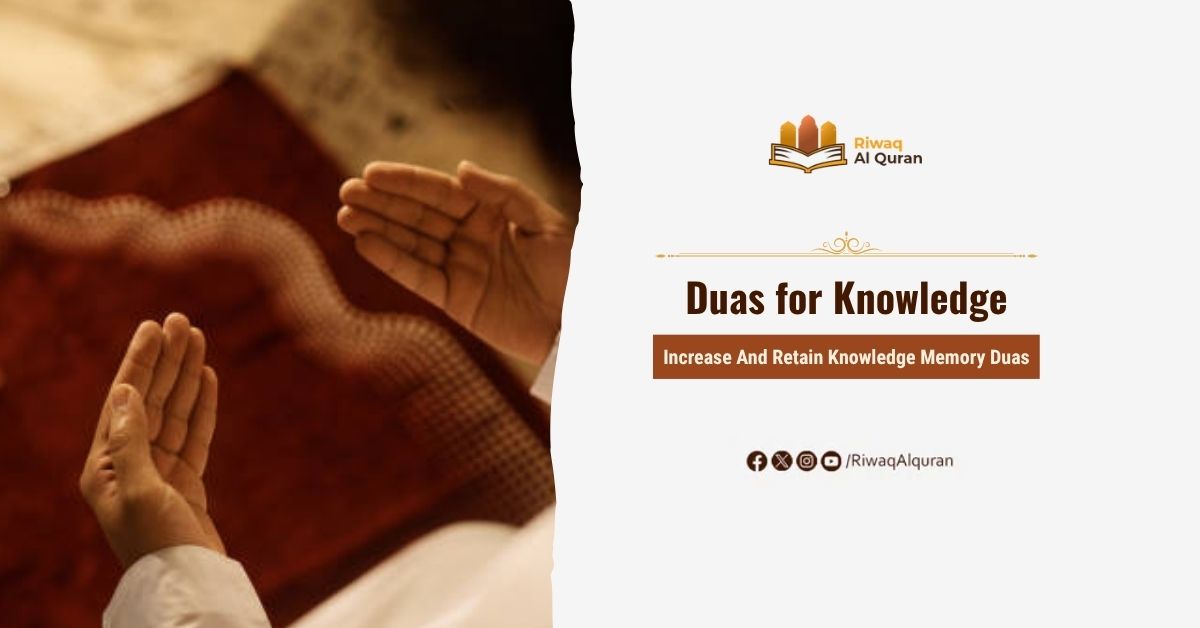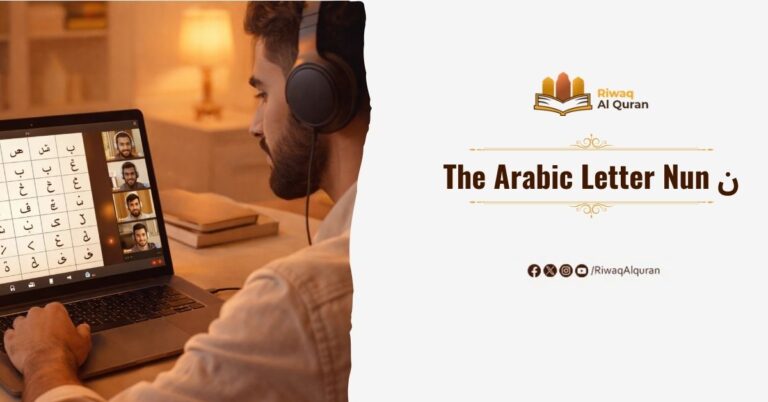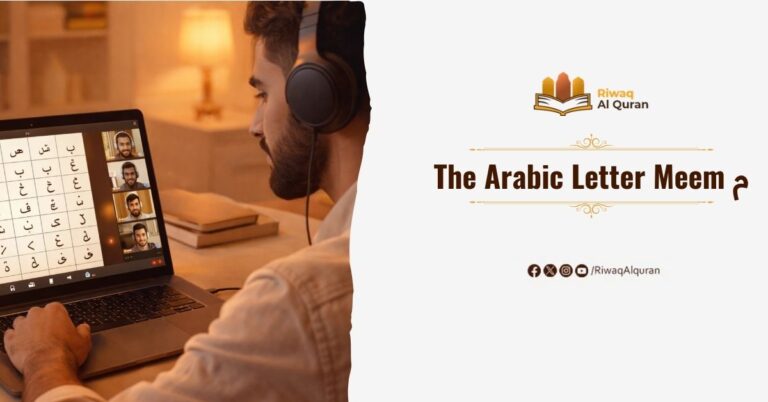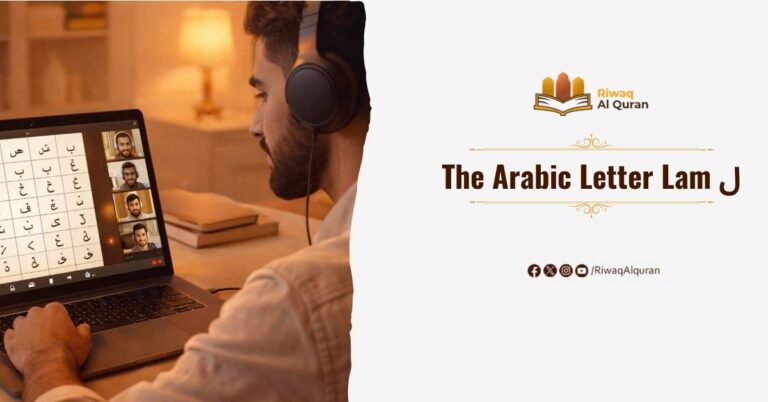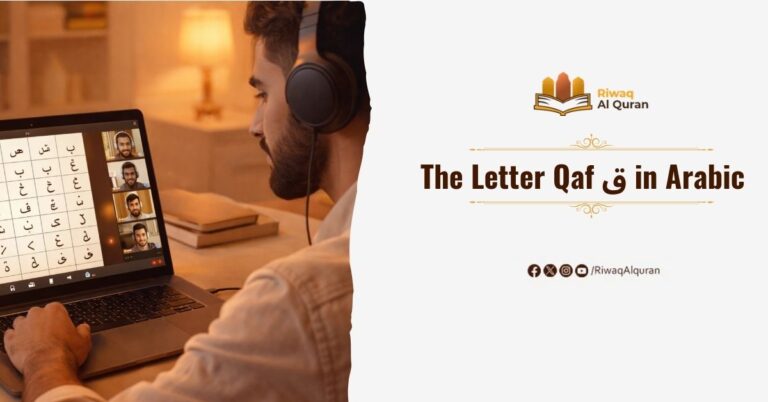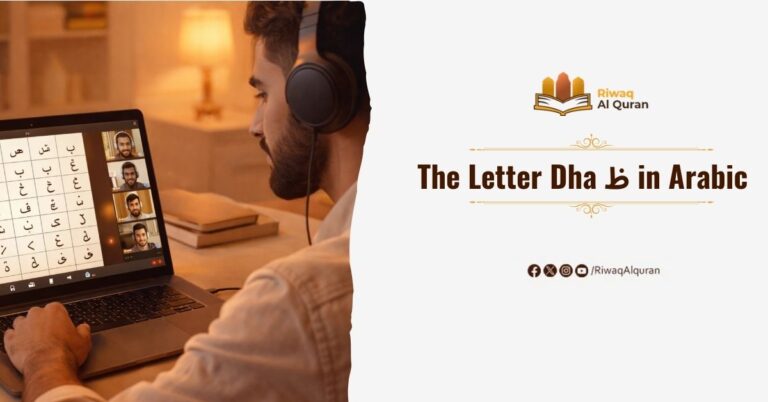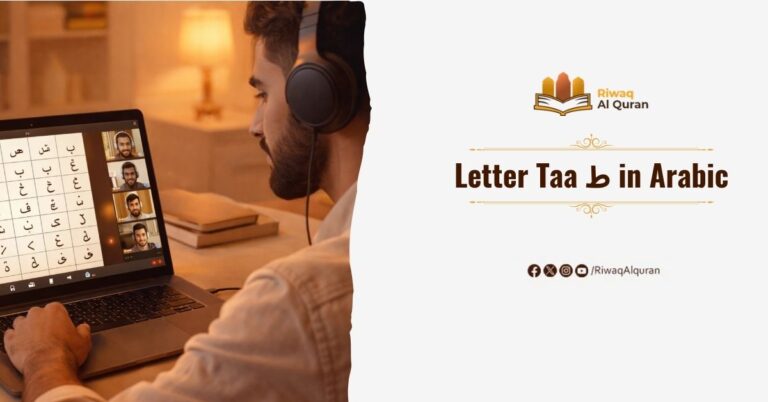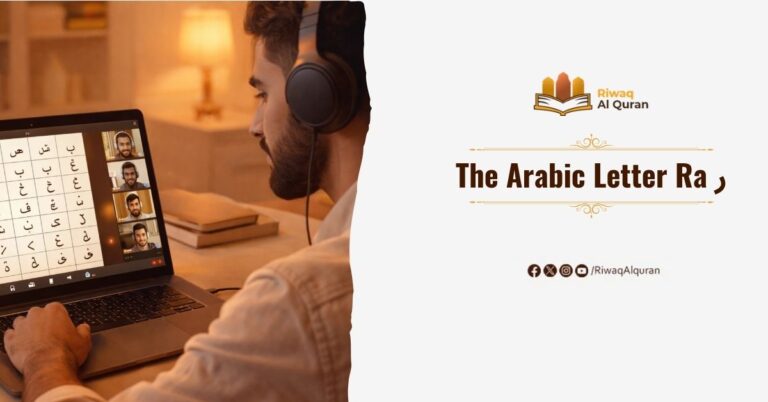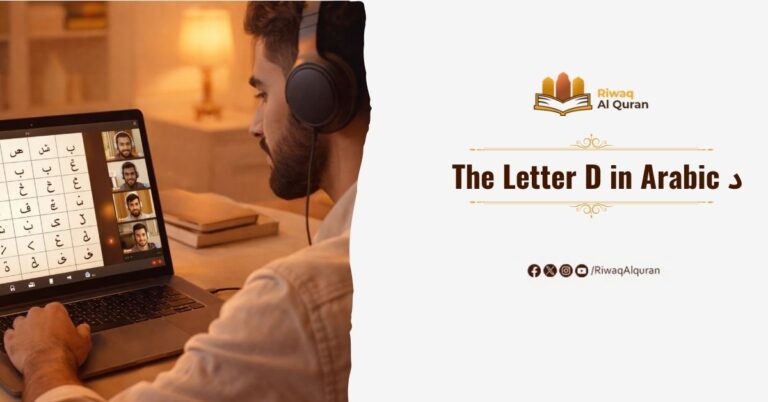Ever found yourself struggling to concentrate during a study session or forgetting things you’ve just learned? You’re not alone. In our pursuit of knowledge—whether religious, academic, or practical—we often hit walls. That’s where the power of dua for knowledge comes in. As Muslims, we believe that true knowledge is a gift from Allah, and turning to Him through sincere supplication not only strengthens our minds but also purifies our intentions.
In this guide, you’ll find authentic, powerful duas for knowledge and memory, answers to which dua increases knowledge, and practical steps to enhance your learning. Let’s combine faith with effort and seek beneficial knowledge the way Islam teaches us to.
Table of Contents
Powerful Duas for Knowledge
Are you searching for a dua to increase knowledge, strengthen memory, or retain what you’ve studied? You’re in the right place. The Prophet ﷺ and the righteous before us turned to Allah in all matters—including their pursuit of knowledge. Below is a collection of authentic and powerful duas for knowledge you can recite regularly to gain clarity, understanding, and lasting benefit from what you learn.
1. Dua Before an Exam or Studying
This dua for knowledge and memory is ideal before any test, study session, or moment requiring mental focus. It calms anxiety and invites ease from Allah.
Arabic:
اللَّهُمَّ لا سَهْلَ إِلَّا ما جَعَلْتَهُ سَهْلًا، وَأَنْتَ تَجْعَلُ الحَزْنَ إِذَا شِئْتَ سَهْلًا
Transliteration:
Allahumma la sahla illa ma ja‘altahu sahlًا, wa anta taj‘alu al-hazna idha shi’ta sahlًا
Translation:
“O Allah, nothing is easy except what You make easy. And if you will, you can make the difficult easy.”
2. Dua to Increase Knowledge and Memory
Wondering which dua increases knowledge? This simple yet powerful supplication from the Quran was often recited by the Prophet ﷺ.
Arabic:
رَبِّ زِدْنِي عِلْمًا
Transliteration:
Rabbi zidni ‘ilma
Translation:
“My Lord, increase me in knowledge.”
4. Qur’anic Dua for Beneficial Knowledge
This is a beautiful dua for beneficial knowledge—knowledge that brings value to your life and is pleasing to Allah.
Arabic:
اللَّهُمَّ إِنِّي أَسْأَلُكَ عِلْمًا نَافِعًا، وَرِزْقًا طَيِّبًا، وَعَمَلًا مُتَقَبَّلًا
Transliteration:
Allahumma inni as’aluka ‘ilman nafi’an, wa rizqan tayyiban, wa ‘amalan mutaqabbalan
Translation:
“O Allah, I ask You for beneficial knowledge, good and pure provision, and accepted deeds.”
5. Dua to Retain Knowledge
This dua to retain knowledge is derived from the words of the righteous and reflects the desire not just to learn but to apply what is learned wisely.
Arabic:
اللَّهُمَّ اجْعَلْنِي مِمَّنْ يَسْتَمِعُونَ الْقَوْلَ فَيَتَّبِعُونَ أَحْسَنَهُ
Transliteration:
Allahumma aj‘alni mimman yastami‘oona al-qawla fayattabi‘oona ahsanah
Translation:
“O Allah, make me among those who listen to the speech and follow the best of it.”
6. Dua for Wisdom and Understanding
This is a Quranic dua made by Prophet Sulayman (AS), asking for wisdom and sound judgment—perfect for students, researchers, or anyone seeking deep understanding.
Arabic:
رَبِّ أَوْزِعْنِي أَنْ أَشْكُرَ نِعْمَتَكَ الَّتِي أَنْعَمْتَ عَلَيَّ وَعَلَىٰ وَالِدَيَّ وَأَنْ أَعْمَلَ صَالِحًا تَرْضَاهُ وَأَدْخِلْنِي بِرَحْمَتِكَ فِي عِبَادِكَ الصَّالِحِينَ
Transliteration:
Rabbi awzi‘ni an ashkura ni‘mataka allati an‘amta ‘alayya wa ‘ala walidayya wa an a‘mala salihan tardah, wa adkhilni birahmatika fi ‘ibadika as-salihin
Translation:
“My Lord, enable me to be grateful for Your favor which You have bestowed upon me and my parents, and to do righteousness that You approve of. And admit me by Your mercy into [the ranks of] Your righteous servants.”
[Surah An-Naml: 19]
7. Dua for Light and Guidance in Learning
The Prophet ﷺ made this dua asking Allah for light in all directions—a metaphor for clarity, insight, and guidance in every matter, including knowledge.
Arabic:
اللَّهُمَّ اجْعَلْ فِي قَلْبِي نُورًا، وَفِي بَصَرِي نُورًا، وَفِي سَمْعِي نُورًا، وَعَنْ يَمِينِي نُورًا، وَعَنْ شِمَالِي نُورًا، وَمِنْ فَوْقِي نُورًا، وَمِنْ تَحْتِي نُورًا، وَأَمَامِي نُورًا، وَخَلْفِي نُورًا، وَاجْعَلْ لِي نُورًا
Transliteration:
Allahumma aj‘al fi qalbi nooran, wa fi basari nooran, wa fi sam‘i nooran, wa ‘an yamini nooran, wa ‘an shimali nooran, wa min fawqi nooran, wa min tahti nooran, wa amami nooran, wa khalfi nooran, waj‘al li nooran
Translation:
“O Allah, place light in my heart, light in my sight, light in my hearing, light on my right, light on my left, light above me, light beneath me, light in front of me, light behind me, and make light for me.”
8. Dua for Protection from Useless Knowledge
Sometimes, we gain knowledge that is not beneficial—or worse, harmful. The Prophet ﷺ used to seek refuge from this.
Arabic:
اللَّهُمَّ إِنِّي أَعُوذُ بِكَ مِنْ عِلْمٍ لَا يَنْفَعُ، وَمِنْ قَلْبٍ لَا يَخْشَعُ، وَمِنْ نَفْسٍ لَا تَشْبَعُ، وَمِنْ دُعَاءٍ لَا يُسْمَعُ
Transliteration:
Allahumma inni a‘udhu bika min ‘ilmin la yanfa‘, wa min qalbin la yakhsha‘, wa min nafsin la tashba‘, wa min du‘a’in la yusma‘
Translation:
“O Allah, I seek refuge in You from knowledge that does not benefit, from a heart that does not humble, from a soul that is not satisfied, and from a supplication that is not answered.”
9. Dua for Clarity and Strong Memory
Scholars often recommend this beautiful Quranic dua made by Prophet Musa (AS) when he was entrusted with a difficult mission—asking for clarity, ease, and fluency.
Arabic:
رَبِّ اشْرَحْ لِي صَدْرِي، وَيَسِّرْ لِي أَمْرِي، وَاحْلُلْ عُقْدَةً مِّن لِسَانِي، يَفْقَهُوا قَوْلِي
Transliteration:
Rabbi ishrah li sadri, wa yassir li amri, wahlul ‘uqdatan min lisani, yafqahu qawli
Translation:
“My Lord, expand for me my chest, and ease for me my task, and untie the knot from my tongue, so that they may understand my speech.”
[Surah Taha: 25–28]
These duas for seeking knowledge are more than just words—they’re a spiritual roadmap. Recite them with sincerity, take action, and trust in Allah’s wisdom to guide you on your path to beneficial knowledge.

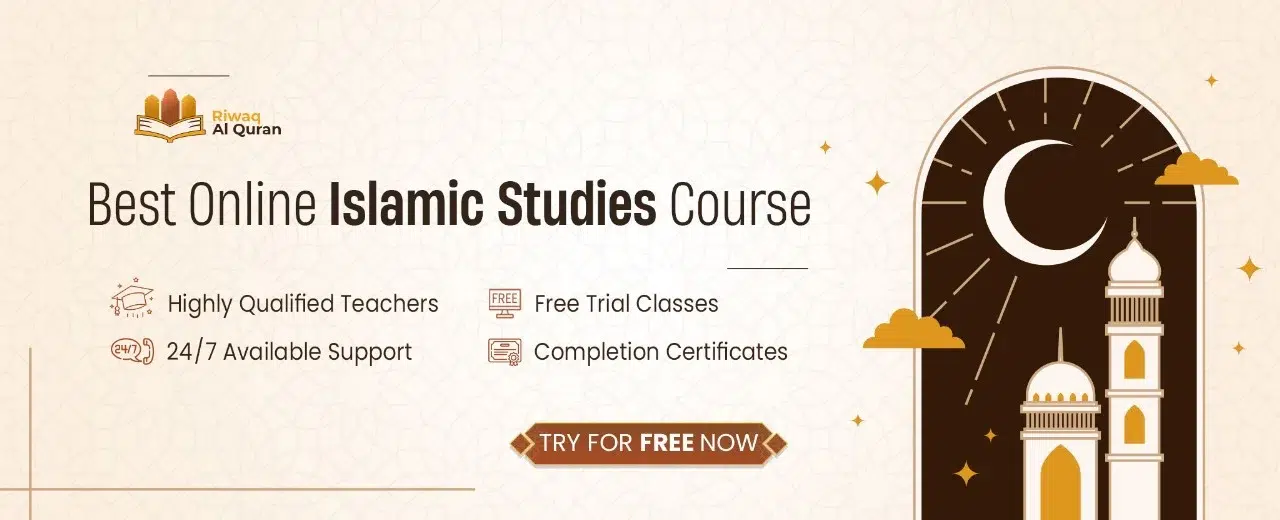
The Power and Significance of Dua for Knowledge
In Islam, knowledge is not just information—it’s a sacred trust. When we make dua for knowledge, we’re doing more than asking for academic success; we’re seeking a divine gift that brings clarity, purpose, and spiritual growth. Allah is Al-‘Aleem (The All-Knowing), and through His mercy, He opens the hearts and minds of those who turn to Him sincerely.
Read Also: Duas for Memory and Remembering Things
An Islamic Perspective on Seeking Knowledge
The importance of seeking knowledge in Islam cannot be overstated. The very first word revealed in the Quran was “Iqra”—Read. The Prophet Muhammad ﷺ said:
“Seeking knowledge is an obligation upon every Muslim.”
(Sunan Ibn Majah)
Whether it’s religious, worldly, or life-enhancing knowledge, Islam honors the learner. Making dua for seeking knowledge aligns your efforts with Allah’s will, turning your studies into acts of worship.
The Virtue of This Supplication
The Prophet ﷺ regularly made dua to increase knowledge, asking Allah for what is beneficial. He taught us to differentiate between knowledge that helps and knowledge that harms. He would say,
“O Allah, I ask You for beneficial knowledge…”
(Sunan Ibn Majah)
By reciting these duas for knowledge and memory, you’re not just seeking success in this life—you’re also laying a foundation for the Hereafter. This consistent connection with Allah develops tawakkul (trust in Allah), ikhlas (sincerity), and humility, all of which are essential traits of a true student in Islam.
Practical Steps to Complement Your Duas
While making dua for knowledge is a powerful spiritual tool, Islam teaches us to combine supplication with action. The Prophet ﷺ relied on Allah completely—but also took practical steps in every matter of his life. When it comes to learning, memorizing, or understanding, we must follow the same balanced approach.
Here are some practical steps you can take to support your duas for knowledge, memory, and success:
1. Create a Study Schedule
A structured routine is essential. Divide your time between new learning, revision, and breaks. When you plan your day around learning, you tell your brain (and your soul) that this is a priority.
Tip: Use time blocks with specific goals. Example: 10:00 AM–10:45 AM: Revise 2 pages of the Quran.
Then, make a dua to retain knowledge right before and after.
2. Remove Distractions
Even the most sincere dua to increase knowledge won’t be fully effective if you’re constantly distracted. Digital interruptions, noise, or even mental clutter can reduce focus and retention.
Tip: Turn off notifications, study in a quiet space, and make wudu before beginning to bring spiritual clarity.
3. Take Notes and Summarize
Don’t just read or listen—write things down. Summarizing what you’ve learned activates different parts of the brain and improves long-term memory.
Tip: Keep a “Knowledge Journal” to jot down key points, duas for beneficial knowledge, and personal reflections. Rewriting something in your own words is a proven memory technique.
4. Teach What You Learn
Teaching others is one of the best ways to deeply understand and retain what you’ve learned. This applies whether you’re memorizing the Quran, studying science, or attending Islamic lectures.
Tip: Share one key concept with a sibling, friend, or even online. You’ll remember it better—and earn a reward for spreading knowledge.
5. Review Regularly and Consistently
Just as we repeat duas for seeking knowledge regularly, we should revisit what we’ve learned over time. Spaced repetition is a powerful method to lock information into long-term memory.
Tip: Use apps like Anki or Quizlet for revision, or set up a weekly review session in your calendar.
6. Stay Spiritually Connected
Your spiritual state greatly impacts your mental clarity. Acts of worship like prayer, dhikr, and Quran recitation help keep the heart clean and the mind focused.
Tip: Combine study breaks with short moments of dhikr or reflection. Recite “Rabbi zidni ‘ilma” after every prayer as a habit.
7. Sleep Well and Eat Well
Sometimes, we overlook the physical aspect of learning. But sleep and nutrition are vital for memory consolidation and focus.
Tip: Avoid cramming late at night. Eat brain-friendly foods like dates, honey, and nuts. And remember: your body is an amanah (trust) too.
When you combine duas to increase knowledge with effort, routine, and intention, you invite barakah (blessing) into your learning. Trust that Allah sees your struggle—and He will reward every step, both spiritual and practical.
Explore Our Quran Courses Now—and choose from a wide variety of programs tailored for every level:
- Online Quran Courses for Kids
- Online Quran Courses
- Online Arabic Classes And Courses
- Online Ijazah Courses
- Top-Rated Online Islamic Studies Courses
Learn Quran and Islamic Studies with Riwaq Al Quran
Making dua for knowledge is the first and most essential step on your journey—but it doesn’t stop there. To truly grow in understanding and gain beneficial knowledge, you need guidance, structure, and access to qualified teachers.
At Riwaq Al Quran, we help students of all ages build a strong foundation in Quranic and Islamic studies through personalized, one-on-one online classes. Whether you’re seeking to
- Memorize the Quran with perfect Tajweed
- Understand tafsir and Islamic rulings
- Learn Arabic to access deeper religious knowledge
- Or simply strengthen your child’s Islamic education at home
Our certified male and female tutors are here to support you—every step of the way.
Why Choose Riwaq Al Quran?
- Structured Quran and Islamic Studies programs
- Native Arabic-speaking teachers with Ijazah
- Flexible class times to fit your schedule
- Courses for kids, teens, and adults
- Free trial class available
“The best among you are those who learn the Quran and teach it.” — Prophet Muhammad ﷺ
(Sahih al-Bukhari)
Start your journey today!
Join thousands of students around the world who’ve grown in faith, knowledge, and confidence with Riwaq Al Quran.
When is the best time to make these duas?
The best times to make duas for knowledge—or any supplication—are during spiritually significant moments when Allah’s mercy is closest. These include:
- During the last third of the night (especially before Fajr)
- Between the Adhan and Iqamah
- After obligatory prayers (Salah)
- While fasting and at the time of breaking the fast
- On Fridays, especially between Asr and Maghrib
- In sujood (prostration) during prayer
Making dua consistently at these times increases the chances of it being accepted. Pairing sincere dua with effort shows your commitment to seeking beneficial knowledge for the sake of Allah.
Read Also: 15 Duas For Success, Victory, And Good Results
Can I say these duas in English, or do they have to be in Arabic?
You can say these duas for knowledge in English or your native language—especially if it helps you express your feelings more sincerely. Allah understands all languages, and what matters most is the sincerity of your heart.
That said, learning and reciting the original Arabic duas—especially those from the Qur’an and Sunnah—has extra virtue and reward. You can start with the English translation, then gradually memorize the Arabic with understanding over time.
How can I help my child learn these Duas?
Helping your child learn duas for knowledge can be simple and enjoyable with the right approach. Here are a few tips:
- Start with short and simple duas, like “Rabbi zidni ‘ilma” – easy to memorize and powerful in meaning.
- Repeat them daily—before school, during study time, or after prayer—to build a natural routine.
- Use visual aids like colorful dua cards, posters, or charts in their room or study area.
- Lead by example: Recite the duas with them, and let them see you using them too.
- Enroll them in Quran and Islamic classes (like Riwaq Al Quran), where learning duas is part of the structured curriculum.
Consistency, encouragement, and making it a shared spiritual experience will help your child internalize these powerful supplications for life.
What if I make a mistake in pronunciation?
Don’t worry—Allah is Most Merciful and knows your intention. If you make a mistake in pronouncing a dua for knowledge, it doesn’t invalidate your supplication. What matters most is sincerity and turning to Allah with a humble heart.
That said, it’s always good to try to improve. You can:
- Listen to audio recitations and repeat after them
- Practice with a teacher or tutor
- Use transliterations as a learning tool while working toward memorizing the Arabic properly
Remember, the effort to learn and improve is also an act of worship—and Allah rewards every step you take toward Him.


Learn Quran, Arabic And Islamic Studies Online With The Best Native Tutors
Riwaq Al Quran is a comprehensive online platform that offers personalized Quran, Arabic and Islamic Studies Online classes for individuals of all ages and backgrounds.
Their experienced instructors use a structured curriculum to cover Tajweed, Tafsir, and Memorization, providing easy and effective access to learning the Quran.
The advanced online classes allow for seamless communication and interaction between students and teachers. Join Riwaq Al Quran for a deeper connection with the Quran.
We offer several courses such as:
- Online courses for kids.
- Online Quran classes for kids and adults.
- Online Arabic courses
- Online Ijazah courses
- Online Islamic Studies courses.
Here are a sample of our set of Quran Courses that will be helpful for you:
- Online Tafseer Course: Delve into Quranic meanings with our insightful online Tafseer course.
- Noorani Qaida Online: Learn Quranic basics efficiently through our Noorani Qaida online program.
- Online Quran Recitation Course: Enhance Quranic recitation skills through our expert-led online course.
- Online Tajweed Classes: Master Tajweed rules for beautiful Quranic recitation in online classes.
- Quran Memorization Online Course: Memorize the Quran effectively with our specialized online memorization course.
- Online Qirat Course: Explore diverse Qirat styles with our comprehensive online Qirat course.
Online Quran Classes for Kids: Nurture a love for the Quran in kids through interactive online classes.
Conclusion
Seeking knowledge is one of the most noble and rewarding pursuits in Islam—and making dua for knowledge is a powerful way to invite Allah’s guidance, blessings, and support along that journey. From asking for beneficial knowledge to making duas to retain and understand what we learn, these supplications reflect our dependence on Allah and our sincere desire to grow.
But dua alone is not enough. Islam teaches us to pair prayer with action—to plan, study, revise, teach, and strive for excellence in every area of learning.
So whether you’re a student, a parent, or simply someone eager to grow in your deen or your education, let your path begin with a sincere dua, followed by consistent effort and trust in Allah.
May Allah grant you ‘ilman nafi’an (beneficial knowledge), a heart that remembers, and success in this world and the next.
Start your journey today—make dua, seek knowledge, and rely on Allah every step of the way.

